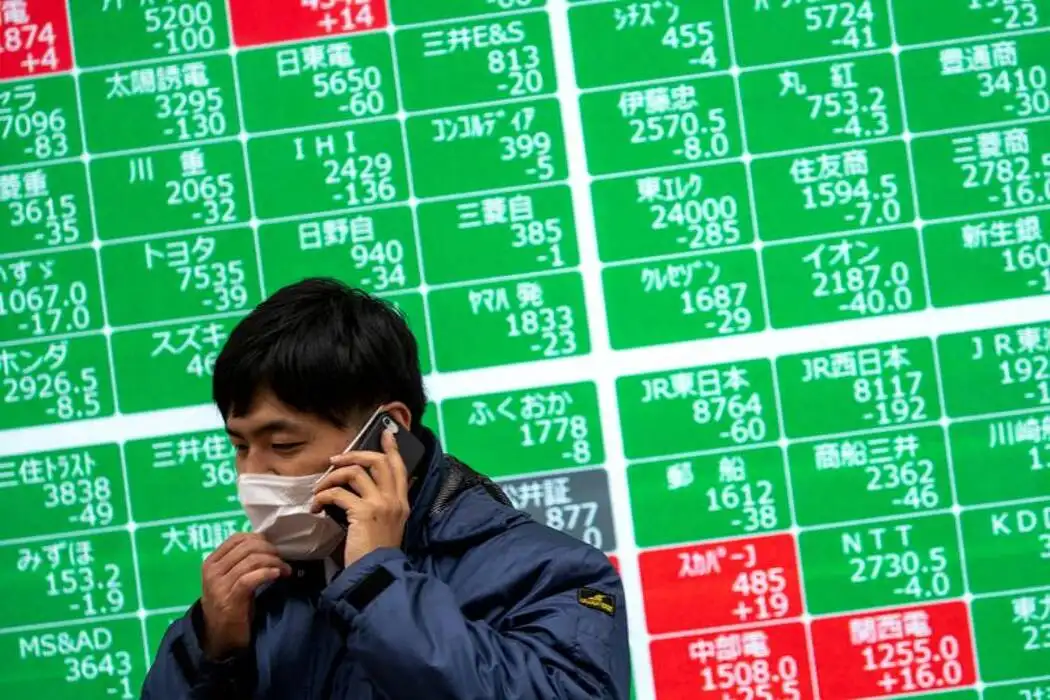简体中文
繁體中文
English
Pусский
日本語
ภาษาไทย
Tiếng Việt
Bahasa Indonesia
Español
हिन्दी
Filippiiniläinen
Français
Deutsch
Português
Türkçe
한국어
العربية
The lifeblood of Venezuela's economy is taking a beating in the wake of Trump's sanctions
Abstract:Venezuelas oil shipments have reportedly fallen sharply since the US hit the country with energy sanctions.
Oil shipments from Venezuela have reportedly fallen by more than a third over the past month.That's after the Trump administration imposed sanctions on the country's state-run oil industry.The sanctions were rolled out in an attempt to cripple the government of President Nicolas Maduro, who is facing global pressure to cede power to opposition leader Juan Guaidó.Venezuela's oil shipments have reportedly fallen sharply since the US hit the country with energy sanctions. Reuters reported Thursday that oil shipments from the country dropped 40% to 920,000 barrels per day over the past month. The Trump administration said in January it would impose economic penalties against PDVSA in an attempt to cripple the government of President Nicolas Maduro, who is facing global pressure to cede power to opposition leader Juan Guaidó.While the country's oil output has fallen sharply in recent years, it had until 2019 been a major source of heavy crude for the US. Most of Venezuela's shipments over the past month have gone to India, Singapore and China.Oil revenue in Venezuela has in the past accounted for for 98% of export earnings, according to OPEC. Analysts say the sanctions, along with output reduction among OPEC and other major producers, could point to a heavy crude squeeze ahead. “With these production agreements, those countries that have cut production made it abundantly clear that they would cut lower-value heavy crudes first,” Ashley Petersen, a senior oil analyst at Stratas Advisors, said in a recent interview. “Add to that the issues in Venezuela, and then the shut-ins in Alberta and you suddenly have less heavy than expected.”Oil prices were mixed Thursday afternoon, with West Texas Intermediate trading just over $57 per barrel and Brent around $66.
Disclaimer:
The views in this article only represent the author's personal views, and do not constitute investment advice on this platform. This platform does not guarantee the accuracy, completeness and timeliness of the information in the article, and will not be liable for any loss caused by the use of or reliance on the information in the article.
Read more

GemForex | Crude Oil (WTI)
Crude Oil (WTI) - Rebound in the offing?

Oil inches higher as OPEC meetings continue
A stronger than expected payroll report last Friday pushed equity markets to another all-time high. The U.S. economy added 850,000 new jobs during June when the consensus expected 700,000. Whilst the headline number looks good, there’s plenty to be worried about under the hood, as the new jobs are mostly in those sectors of the economy that have reopened. For instance, the leisure and hospitality sectors added 343,000 new jobs, education around 269,000, and the retail sector 67,000. These add up to around 80% of the total; this is great at first glance but not in the long run since these sectors do not drive the productivity or wage growth required for sustainable expansion. In particular, the U.S. economy is 70% consumer driven, which emphasizes the importance of a healthy and wealthy labor market. With the country still 7 million jobs short of pre-pandemic levels and most of the recovery happening in low-paying and low-productivity sectors, there is still a long way to go before the

Oil Countdown: With 48 Hours To OPEC Meeting, Where Are Prices Headed?
It’s the answer every oil trader is seeking, yet will likely get with only a certain degree of accuracy. With about two days left until the all-important ministerial meeting of OPEC+, few things are more crucial than figuring out where oil will be trading before the world alliance of oil producers lays down its policy decisions for December. Dozens of ideas abound on crude prices over the next 48 hours, with as many theories on why they should be so

Oil and euro slip, markets on edge over COVID-19 curbs in Europe
Asian stocks made a soft start to the week on Monday while oil and the euro were under pressure, as the return of COVID-19 restrictions in Europe and talk about hastened tapering from the U.S. Federal Reserve put investors on guard.
WikiFX Broker
Latest News
ASIC Sues Binance Australia Derivatives for Misclassifying Retail Clients
Geopolitical Events: What They Are & Their Impact?
Top 10 Trading Indicators Every Forex Trader Should Know
WikiFX Review: Is FxPro Reliable?
Trading frauds topped the list of scams in India- Report Reveals
Malaysian-Thai Fraud Syndicate Dismantled, Millions in Losses Reported
Why Do You Feel Scared During Trade Execution?
Revolut Leads UK Neobanks in the Digital Banking Revolution
Fusion Markets: Safe Choice or Scam to Avoid?
SEC Approves Hashdex and Franklin Crypto ETFs on Nasdaq
Currency Calculator



